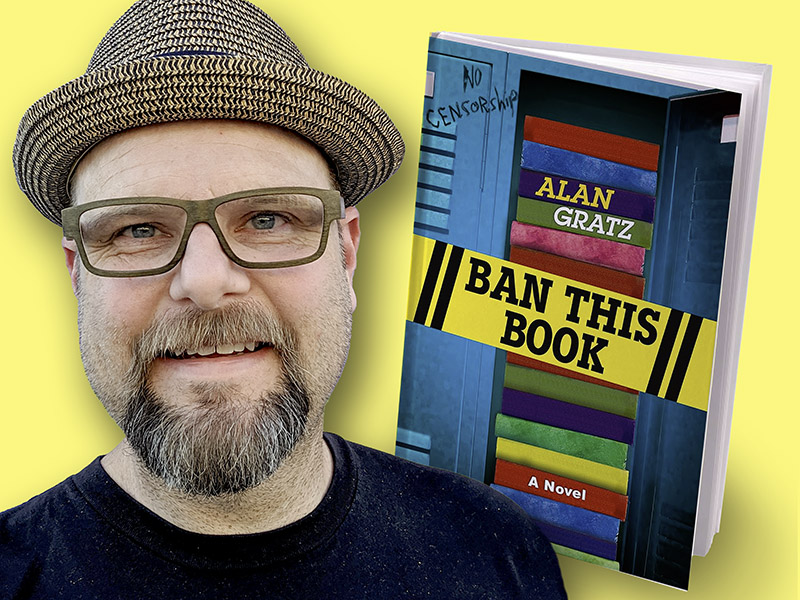Tennessee City Quietly Removes Ban on Homosexuality
In response to a court order, Murfreesboro city officials removed "homosexuality" from a list of "indecent" behaviors.

A Tennessee city that passed a restrictive “public decency” ordinance in June removed language from the statute banning homosexuality in public.
Local officials, however, are still attempting to use the city code to justify banning Pride events and drag performances.
The ordinance, as passed in June, prohibits “knowingly” engaging in “indecent behavior,” displaying, distributing, or broadcasting indecent materials, or subjecting minors to “a prurient interest or to behaviors, materials, or events that are patently offensive to prevailing standards in the adult community as a whole with respect to what is suitable material for minors” in a public space.
The ordinance also prohibits city funds from being used to facilitate “indecent behavior” through the distribution or broadcast of “indecent materials” — such as print materials, broadcasts, or shows — and by carrying out “indecent events,” like parades.
The ordinance echoes language from a state law seeking to ban drag performances. It defines content “harmful to minors” as that which “appeals to the prurient, shameful or morbid interest of minors” or lacks “literary, artistic, political, or scientific value.”
Current Murfreesboro city code defines various behaviors prohibited under the ordinance, including indecent exposure, public indecency, lewd behavior, nudity, and sexual conduct.
Among those behaviors are acts of masturbation, sexual intercourse, or physical contact with a person’s clothed or unclothed genitals or breasts.
Violators of the law are prohibited from sponsoring events in a public space for two years, with that punishment increasing to five years in cases where prohibited conduct occurred in the presence of minors.
When the ordinance was passed in June, the existing city code also defined homosexuality as a form of “sexual conduct.”
But because the city Council was largely focused on banning certain books in libraries, Pride parades, and drag shows, it failed to take into account that state-level laws criminalizing homosexuality have since been declared unconstitutional, even though some of those laws remain on the books.
As a result, for five months, the Murfreesboro ordinance technically banned being gay or expressing LGBTQ identity in public. However, there appear to have been no attempts to prosecute individuals for identifying as such.
The broader “public decency” ordinance has been challenged in court by the American Civil Liberties Union and its Tennessee affiliate, which argue, in a lawsuit on behalf of the Tennessee Equality Project (TEP), that the ordinance is unconstitutional and accuse the Murfreesboro mayor and city manager of engaging in a year-long, targeted campaign seeking to restrict LGBTQ residents’ protected speech and expression.
TEP alleges that city officials denied requests for permits for 2023 BoroPride, a local LGBTQ event, with the intent of barring drag shows, parades, or open displays of LGBTQ identity, and in the hope of forcing organizers to cancel the event.
In response to TEP’s lawsuit, a federal judge issued a court order stopping Murfreesboro from enforcing the ordinance against BoroPride.
The judge also directed the city to remove the mention of homosexuality from its public indecency statute. In response, city officials earlier this month quietly moved to amend the city ordinance to remove homosexuality from the city code’s definition of “sexual conduct,” as reported by The New Republic.
How the courts will rule on the ordinance’s constitutionality remains to be seen. But First Amendment advocates argue that the “decency” ordinance infringes on civil liberties.
“We are glad Murfreesboro officials have amended the ordinance,” the team of attorneys representing TEP said in a statement. “However, we will continue to challenge the remaining portions of this anti-LGBTQ+ ordinance until it is permanently defeated, and all residents of Murfreesboro know that their government officials have no right to censor LGBTQ+ people and our expression.”
Support Metro Weekly’s Journalism
These are challenging times for news organizations. And yet it’s crucial we stay active and provide vital resources and information to both our local readers and the world. So won’t you please take a moment and consider supporting Metro Weekly with a membership? For as little as $5 a month, you can help ensure Metro Weekly magazine and MetroWeekly.com remain free, viable resources as we provide the best, most diverse, culturally-resonant LGBTQ coverage in both the D.C. region and around the world. Memberships come with exclusive perks and discounts, your own personal digital delivery of each week’s magazine (and an archive), access to our Member's Lounge when it launches this fall, and exclusive members-only items like Metro Weekly Membership Mugs and Tote Bags! Check out all our membership levels here and please join us today!


























You must be logged in to post a comment.